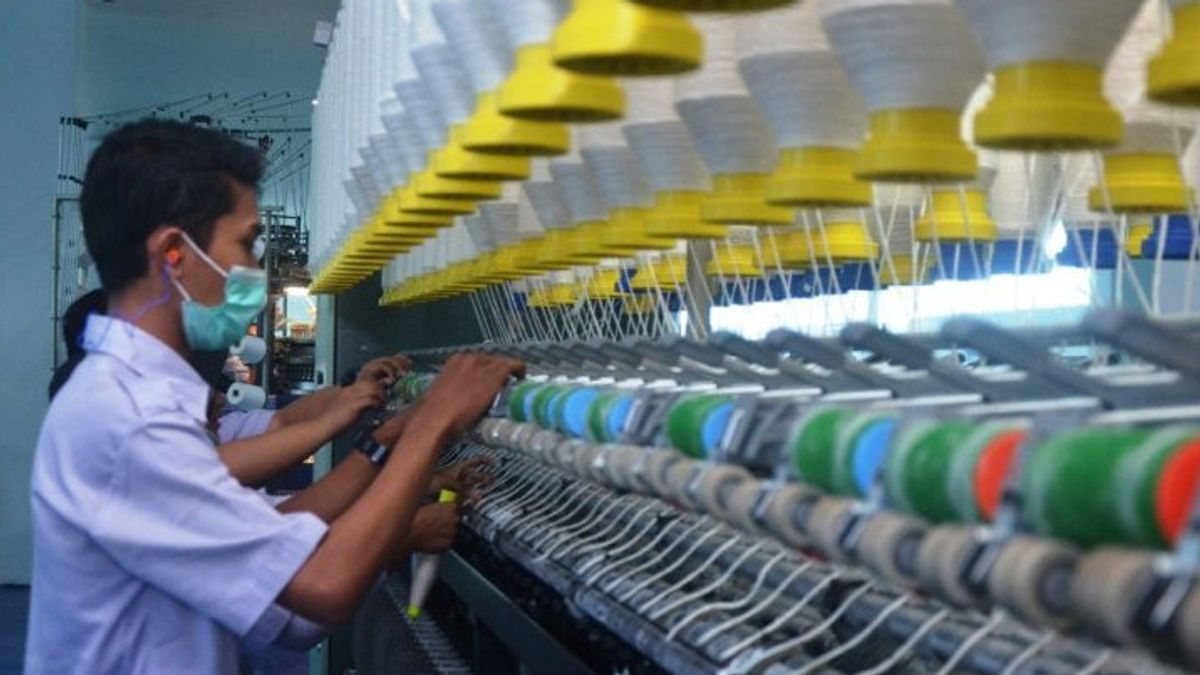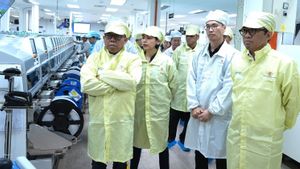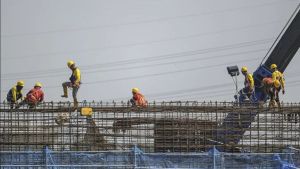JAKARTA - General Chairperson of the Indonesian Textile Association (API) Jemmy Kartiwa Sastraatmadja said the textile and textile product or TPT industry is one of the labor-intensive industries that is greatly affected by the policy of implementing Emergency Community Activity Restrictions (PPKM).
As is known, the government has officially extended the policy for the Implementation of Emergency Community Activity Restrictions (PPKM) until July 25, 2021 to suppress the spread of COVID-19.
Jemmy said, the existence of this Emergency PPKM also had an impact on the limited production activities. Due to these conditions, the move to reduce contract employees en masse was unavoidable.
"The extension of the Emergency PPKM will definitely have a very heavy impact. Maybe the contract employees like it or not, with a heavy heart, the employers will reduce or terminate their contract employees first," he said in a virtual press conference, Wednesday, July 21.
Furthermore, Jemmy said that currently TPT entrepreneurs are screaming at the existence of Emergency PPKM. This was due to the closure of shopping centers and malls throughout Java and Bali. So that sales can not be optimal.
"If retail is closed, it will have an impact on the textile industry, which is a local market. From last week many of our members have closed, even 100 percent," he said.
On the same occasion, the General Chairperson of the Indonesian Employers' Association (Apindo) Hariyadi Sukamdani acknowledged that the termination of non-permanent employee contracts was unavoidable in the midst of the lack of available capital.
According to Hariyadi, this method is the most normative step taken by entrepreneurs in a crisis situation. As for permanent employees, termination of employment (PHK) will rarely be carried out. Because, if that happens, the entrepreneur will have to pay a higher amount of severance pay.
So that the process of terminating contracts or laying off employees can run well, said Hariyadi, negotiations with labor unions have also been carried out by several companies that are bipartite in nature between companies and workers.
"We cannot estimate the actual number. But the possibility exists," he said.
The English, Chinese, Japanese, Arabic, and French versions are automatically generated by the AI. So there may still be inaccuracies in translating, please always see Indonesian as our main language. (system supported by DigitalSiber.id)













